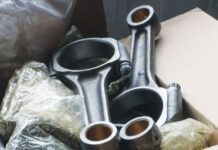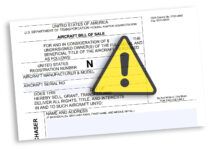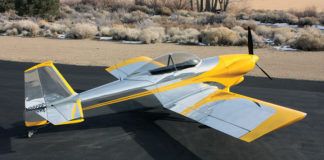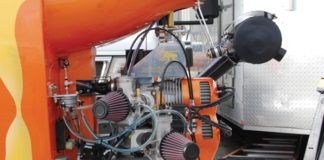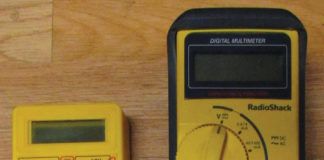The technical writer in me likes brevity:
- Pay to have your kit shipped.
- Delay paying sales tax as long as possible.
With that you could move on to another article, but perhaps you’ve grown curious—and I have a remaining budget of 959 words.
Most homebuilders—and just I’m spit-balling here—have waited a long time to justify the cost of building an airplane. I base this assessment on the demographics of the fly-ins I attend. (Hair color: flesh; eyes: trifocal; weight: increasing; height: decreasing; hearing: .) When we press pencil to paper to estimate the finished cost of an aircraft, we lie a bit to ourselves or our spouse. We round big numbers down. We treat little numbers, $400 seatbelts, $300 batteries, as incidentals and leave them out. We push and pull the pencil until the numbers fit our budget and the shape of the airplane we’ve committed to building. Comfortable with the lies we’ve told ourselves, we place the order.
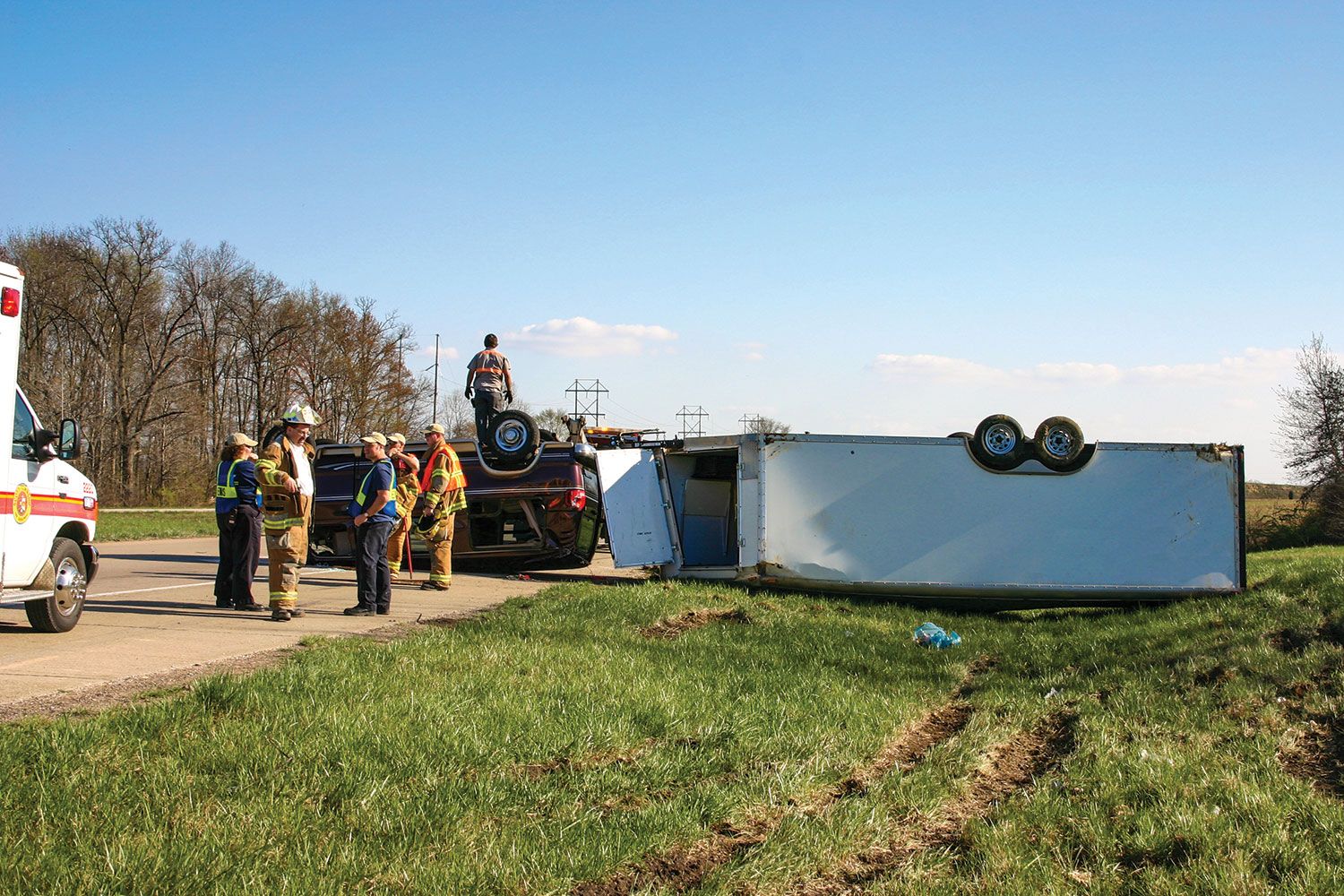
Immediately, two costs we gloss over confront us; shipping and sales tax. An unfortunate few face both costs up front, but for most builders the kit comes from a state other than the one in which they reside, so sales tax is not charged at the time of purchase. Shipping expenses confront everyone. While the purchase of seatbelts and a battery can be punted down the road a year or five, commencing a build is difficult if the kit never arrives. Convinced by the person who took our order there is no way to reduce the shipping cost because the trucking company set it, some builders entertain the idea of borrowing a trailer and picking up the kit themselves. That, however, triggers the addition of state sales tax, which can exceed the cost of shipping. Caught between these two expenses, the decision can be difficult.
Ship or Pick-up?
I’ll cut to the chase. Most builders should have their kit shipped to them. When a kit ships by common carrier, it is insured against loss or damage from the time it leaves the manufacturer to the time it arrives at your home, hangar, or the trucking company’s local terminal. All you have to do is write a check and wait. If you decide to pick up the kit, you trigger a cascading series of decisions and events that, if you’re honest with yourself—more honest than you were with your initial budgeting—will prove more costly and certainly more time consuming than having the kit shipped. You’ll spend on fuel, trailer rental, meals, hotels, tarps and tie-downs. An often overlooked cost of picking up a kit is insurance coverage for the precious cargo. Homeowner’s insurance doesn’t cover an airplane project in your garage and your car insurance may not cover the contents of the trailer.
State Tax Considerations
(I am not a tax professional. The following statements are intended to help you explore the topic with your state’s taxing authority.)
Taxes cannot be avoided, only postponed. Shortly after you register the finished aircraft, your state will send you a tax bill. The bill, generally, is based on the total of your receipts less sales tax you have already paid on purchases. (Keep your receipts in case you face the challenge of disputing what you owe.) There is a caveat, one that requires defeatist thinking. We all begin a project convinced we will finish it. That makes a tax bill inevitable. Statistics suggests otherwise. If you sell the project before it is registered, you won’t face the tax bill. For that reason, if you delay paying state sales tax on as many of your project-related purchases as possible you may never have to pay state sales tax. It’s a small reward for giving up.
Your delivery decision impacts how the kit and, ultimately, the finished aircraft are taxed. If you pick the kit up at the factory, the sale becomes an in-state sale and the manufacturer must charge their state’s sales tax. If the kit is shipped to you from another state, you aren’t charged state sales tax at the time of purchase. Shipment must be accomplished by common carrier, however. You can’t dodge the sales tax by sending your friend or brother-in-law to pick the kit up for you.
If the kit is manufactured in the same state in which you reside, you’ll pay state sales tax whether you pick it up or have it shipped. There is a silver lining to this; taxes paid at the time of purchase are deducted from the taxes due when you register your aircraft. States tax at different rates (3%, 4%, 6%), so you may owe additional tax on items you have already paid tax on. (Another reminder to keep your receipts.) To ease the pain of paying state sales tax to a kit manufacturer, think of it as an installment payment on your final tax bill. However, as I mentioned earlier, you have to finish and register your aircraft to trigger the final tax bill.
I’m sorry to have sullied these pages of KITPLANES® with two topics we’d rather ignore, neither of which add value to your project. Paying to have your kit shipped by professionals doesn’t always save on the cost of getting it to your shop, but it does save the hassle. Paying taxes is unavoidable in the long run but can often be delayed for years. It is my sincere wish that all KITPLANES® readers get a tax bill for their homebuilt, as that is a state’s awkward way of saying, “Congratulations on completing your airplane.”








